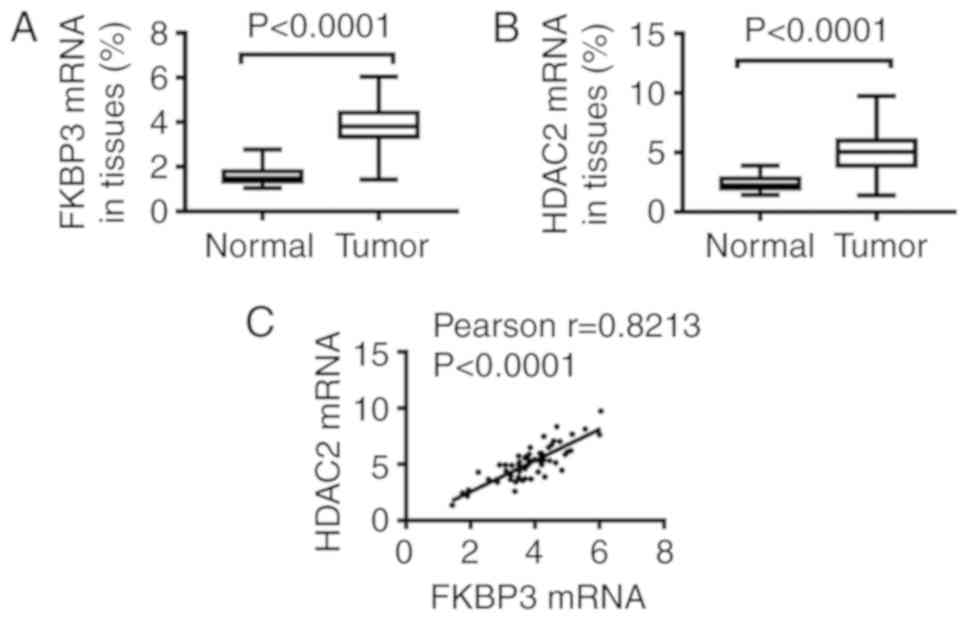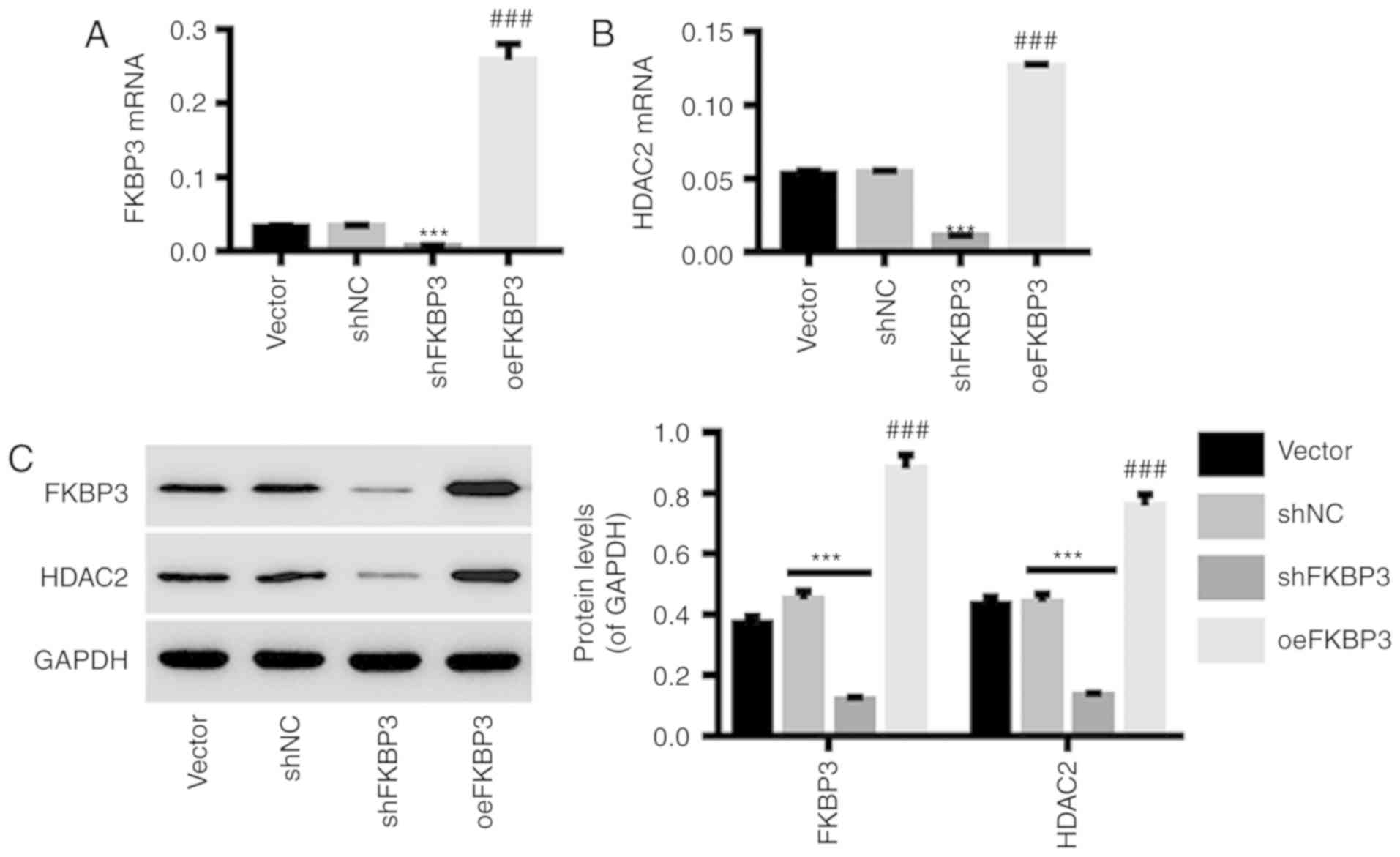|
1
|
Ung L, Lam KY, Morris DL and Chua TC:
Tissue-based biomarkers predicting outcomes in metastatic
colorectal cancer: a review. Clin Transl Oncol. 16:425–435. 2014.
View Article : Google Scholar : PubMed/NCBI
|
|
2
|
Sostres C, Gargallo CJ and Lanas A:
Aspirin, cyclooxygenase inhibition and colorectal cancer. World J
Gastrointest Pharmacol Ther. 5:40–49. 2014. View Article : Google Scholar : PubMed/NCBI
|
|
3
|
Siegel RL, Miller KD and Jemal A: Cancer
statistics, 2016. CA Cancer J Clin. 66:7–30. 2016. View Article : Google Scholar : PubMed/NCBI
|
|
4
|
Chen W, Zheng R, Baade PD, Zhang S, Zeng
H, Bray F, Jemal A, Yu XQ and He J: Cancer statistics in China,
2015. CA Cancer J Clin. 66:115–132. 2016. View Article : Google Scholar : PubMed/NCBI
|
|
5
|
Overman MJ, Morris V, Moinova H, Manyam G,
Ensor J, Lee MS, Eng C, Kee B, Fogelman D, Shroff RT, et al: Phase
I/II study of azacitidine and capecitabine/oxaliplatin (CAPOX) in
refractory CIMP-high metastatic colorectal cancer: Evaluation of
circulating methylated vimentin. Oncotarget. 7:67495–67506. 2016.
View Article : Google Scholar : PubMed/NCBI
|
|
6
|
Meyerhardt JA and Mayer RJ: Systemic
therapy for colorectal cancer. N Engl J Med. 352:476–487. 2005.
View Article : Google Scholar : PubMed/NCBI
|
|
7
|
Kelland L: The resurgence of
platinum-based cancer chemotherapy. Nat Rev Cancer. 7:573–584.
2007. View
Article : Google Scholar : PubMed/NCBI
|
|
8
|
Koul D, Shen R, Bergh S, Sheng X,
Shishodia S, Lafortune TA, Lu Y, de Groot JF, Mills GB and Yung WK:
Inhibition of Akt survival pathway by a small-molecule inhibitor in
human glioblastoma. Mol Cancer Ther. 5:637–644. 2006. View Article : Google Scholar : PubMed/NCBI
|
|
9
|
Xiong F and Chen J: Effect of miR-3651 on
proliferation, apoptosis and expression of PTEN in colon cancer
cells. Chin Clin Oncol. 22:865–868. 2017.
|
|
10
|
Liang YF, Jian-Bo R, Wang LM, Chen C, Kang
DP, Lin BH, Chai XX, Zeng JC and Pathology DO: Expression and
clinical significance of PTEN in colon cancer. China Tropical Med.
15:966–969. 2015.
|
|
11
|
He C, Dong X, Zhai B, Jiang X, Dong D, Li
B, Jiang H, Xu S and Sun X: MiR-21 mediates sorafenib resistance of
hepatocellular carcinoma cells by inhibiting autophagy via the
PTEN/Akt pathway. Oncotarget. 6:28867–28881. 2015. View Article : Google Scholar : PubMed/NCBI
|
|
12
|
Li J, Zhang Y, Zhao J, Kong F and Chen Y:
Overexpression of miR-22 reverses paclitaxel-induced
chemoresistance through activation of PTEN signaling in p53-mutated
colon cancer cells. Mol Cell Biochem. 357:31–38. 2011. View Article : Google Scholar : PubMed/NCBI
|
|
13
|
Solassol J, Mange A and Maudelonde T: FKBP
family proteins as promising new biomarkers for cancer. Curr Opin
Pharmacol. 11:320–325. 2011. View Article : Google Scholar : PubMed/NCBI
|
|
14
|
Mukaide H, Adachi Y, Taketani S, Iwasaki
M, Koi-Kekiriyama N, Shigematsu A, Shi M, Yanai S, Yoshioka K,
Kamiyama Y and Ikehara S: FKBP51 expressed by both normal
epithelial cells and adenocarcinoma of colon suppresses
proliferation of colorectal adenocarcinoma. Cancer Invest.
26:385–390. 2008. View Article : Google Scholar : PubMed/NCBI
|
|
15
|
Li L, Lou Z and Wang L: The role of FKBP5
in cancer aetiology and chemoresistance. Br J Cancer. 104:19–23.
2011. View Article : Google Scholar : PubMed/NCBI
|
|
16
|
Luo K, Li Y, Yin Y, Lei L, Wu C, Chen Y,
Nowsheen S, Qi H, Zhang L, Lou Z and Yuan J: USP49 negatively
regulates tumorigenesis and chemoresistance through FKBP51-AKT
signaling. EMBO J. 36:1434–1446. 2017. View Article : Google Scholar : PubMed/NCBI
|
|
17
|
Ochocka AM, Kampanis P, Nicol S,
Allende-Vega N, Cox M, Marcar L, Milne D, Fuller-Pace F and Meek D:
FKBP25, a novel regulator of the p53 pathway, induces the
degradation of MDM2 and activation of p53. FEBS Lett. 583:621–626.
2009. View Article : Google Scholar : PubMed/NCBI
|
|
18
|
Yang WM, Yao YL and Seto E: The
FK506-binding protein 25 functionally associates with histone
deacetylases and with transcription factor YY1. EMBO J.
20:4814–4825. 2001. View Article : Google Scholar : PubMed/NCBI
|
|
19
|
Oiso H, Furukawa N, Suefuji M, Shimoda S,
Ito A, Furumai R, Nakagawa J, Yoshida M, Nishino N and Araki E: The
role of class I histone deacetylase (HDAC) on gluconeogenesis in
liver. Biochem Biophys Res Commun. 404:166–172. 2011. View Article : Google Scholar : PubMed/NCBI
|
|
20
|
Jeong JB and Lee SH: Protocatechualdehyde
possesses anti- cancer activity through downregulating cyclin D1
and HDAC2 in human colorectal cancer cells. Biochem Biophys Res
Commun. 430:381–386. 2013. View Article : Google Scholar : PubMed/NCBI
|
|
21
|
Zhang H, Zhao B, Huang C, Meng XM, Bian EB
and Li J: Melittin restores PTEN expression by down-regulating
HDAC2 in human hepatocelluar carcinoma HepG2 cells. PLoS One.
9:e955202014. View Article : Google Scholar : PubMed/NCBI
|
|
22
|
Zhu W, Li Z, Xiong L, Yu X, Chen X and Lin
Q: FKBP3 promotes proliferation of non-small cell lung cancer cells
through regulating Sp1/HDAC2/p27. Theranostics. 7:3078–3089. 2017.
View Article : Google Scholar : PubMed/NCBI
|
|
23
|
Livak KJ and Schmittgen TD: Analysis of
relative gene expression data using real-time quantitative PCR and
the 2(-Delta Delta C(T)) method. Methods. 25:402–408. 2001.
View Article : Google Scholar : PubMed/NCBI
|
|
24
|
Hong JY, Kang B, Kim A, Hwang S, Ahn J,
Lee S, Kim J, Park JH and Cheon DS: Development of a highly
sensitive real-time one step RT-PCR combined complementary locked
primer technology and conjugated minor groove binder probe. Virol
J. 8:3302011. View Article : Google Scholar : PubMed/NCBI
|
|
25
|
Xiong H, Hong J, Du W, Lin YW, Ren LL,
Wang YC, Su WY, Wang JL, Cui Y, Wang ZH and Fang JY: Roles of STAT3
and ZEB1 proteins in E-cadherin down-regulation and human
colorectal cancer epithelial-mesenchymal transition. J Biol Chem.
287:5819–5832. 2012. View Article : Google Scholar : PubMed/NCBI
|
|
26
|
Virag P, Brie I, Fischer-Fodor E,
Perde-Schrepler M, Tatomir C, Balacescu O, Irimie A and Postescu
ID: Assessment of cytotoxicity, apoptosis and DNA damages in
Colo320 colorectal cancer cells selected for oxaliplatin
resistance. Cell Biochem Funct. 29:351–355. 2011. View Article : Google Scholar : PubMed/NCBI
|
|
27
|
Cohen GM: Caspases: The executioners of
apoptosis. Biochem J. 326:1–16. 1997. View Article : Google Scholar : PubMed/NCBI
|
|
28
|
Gao G and Dou QP: G(1) phase-dependent
expression of bcl-2 mRNA and protein correlates with
chemoresistance of human cancer cells. Mol Pharmacol. 58:1001–1010.
2000. View Article : Google Scholar : PubMed/NCBI
|
|
29
|
Lee MS, Jeong MH, Lee HW, Han HJ, Ko A,
Hewitt SM, Kim JH, Chun KH, Chung JY, Lee C, et al: PI3K/AKT
activation induces PTEN ubiquitination and destabilization
accelerating tumourigenesis. Nat Commun. 6:77692015. View Article : Google Scholar : PubMed/NCBI
|
|
30
|
Salmena L, Carracedo A and Pandolfi PP:
Tenets of PTEN tumor suppression. Cell. 133:403–414. 2008.
View Article : Google Scholar : PubMed/NCBI
|
|
31
|
Davies MA, Lu Y, Sano T, Fang X, Tang P,
Lapushin R, Koul D, Bookstein R, Stokoe D, Yung WK, et al:
Adenoviral transgene expression of MMAC/PTEN in human glioma cells
inhibits akt activation and induces anoikis. Cancer Res.
58:5285–5290. 1998.PubMed/NCBI
|
|
32
|
Mehrian-Shai R, Chen CD, Shi T, Horvath S,
Nelson SF, Reichardt JK and Sawyers CL: Insulin growth
factor-binding protein 2 is a candidate biomarker for PTEN status
and PI3K/Akt pathway activation in glioblastoma and prostate
cancer. Proc Natl Acad Sci USA. 104:5563–5568. 2007. View Article : Google Scholar : PubMed/NCBI
|
|
33
|
Choi BH and Yoon HS: FKBP38-Bcl-2
interaction: A novel link to chemoresistance. Curr Opin Pharmacol.
11:354–359. 2011. View Article : Google Scholar : PubMed/NCBI
|
|
34
|
Ma D, Bai X, Zou H, Lai Y and Jiang Y:
Rheb GTPase controls apoptosis by regulating interaction of FKBP38
with Bcl-2 and Bcl-XL. J Biol Chem. 285:8621–8627. 2010. View Article : Google Scholar : PubMed/NCBI
|
|
35
|
Krämer OH, Knauer SK, Zimmermann D,
Stauber RH and Heinzel T: Histone deacetylase inhibitors and
hydroxyurea modulate the cell cycle and cooperatively induce
apoptosis. Oncogene. 27:732–740. 2008. View Article : Google Scholar : PubMed/NCBI
|
|
36
|
Jung KH, Noh JH, Kim JK, Eun JW, Bae HJ,
Xie HJ, Chang YG, Kim MG, Park H, Lee JY and Nam SW: HDAC2
overexpression confers oncogenic potential to human lung cancer
cells by deregulating expression of apoptosis and cell cycle
proteins. J Cell Biochem. 113:2167–2177. 2012. View Article : Google Scholar : PubMed/NCBI
|
|
37
|
Wang X, Taplick J, Geva N and Oren M:
Inhibition of p53 degradation by Mdm2 acetylation. FEBS Lett.
561:195–201. 2004. View Article : Google Scholar : PubMed/NCBI
|
|
38
|
Fresno Vara JA, Casado E, de Castro J,
Cejas P, Belda-Iniesta C and González-Barón M: PI3K/Akt signalling
pathway and cancer. Cancer Treat Rev. 30:193–204. 2004. View Article : Google Scholar : PubMed/NCBI
|
|
39
|
Gan YH and Zhang S: PTEN/AKT pathway
involved in histone deacetylases inhibitor induced cell growth
inhibition and apoptosis of oral squamous cell carcinoma cells.
Oral Oncol. 45:e150–e154. 2009. View Article : Google Scholar : PubMed/NCBI
|
|
40
|
Song MS, Salmena L and Pandolfi PP: The
functions and regulation of the PTEN tumour suppressor. Nat Rev Mol
Cell Biol. 13:283–296. 2012. View Article : Google Scholar : PubMed/NCBI
|
|
41
|
van Echten-Deckert G, Zschoche A, Bär T,
Schmidt RR, Raths A, Heinemann T and Sandhoff K:
cis-4-Methylsphingosine decreases sphingolipid biosynthesis by
specifically interfering with serine palmitoyltransferase activity
in primary cultured neurons. J Biol Chem. 272:15825–15833. 1997.
View Article : Google Scholar : PubMed/NCBI
|
|
42
|
Nemoto S, Nakamura M, Osawa Y, Kono S,
Itoh Y, Okano Y, Murate T, Hara A, Ueda H, Nozawa Y and Banno Y:
Sphingosine kinase isoforms regulate oxaliplatin sensitivity of
human colon cancer cells through ceramide accumulation and Akt
activation. J Biol Chem. 284:10422–10432. 2009. View Article : Google Scholar : PubMed/NCBI
|



















